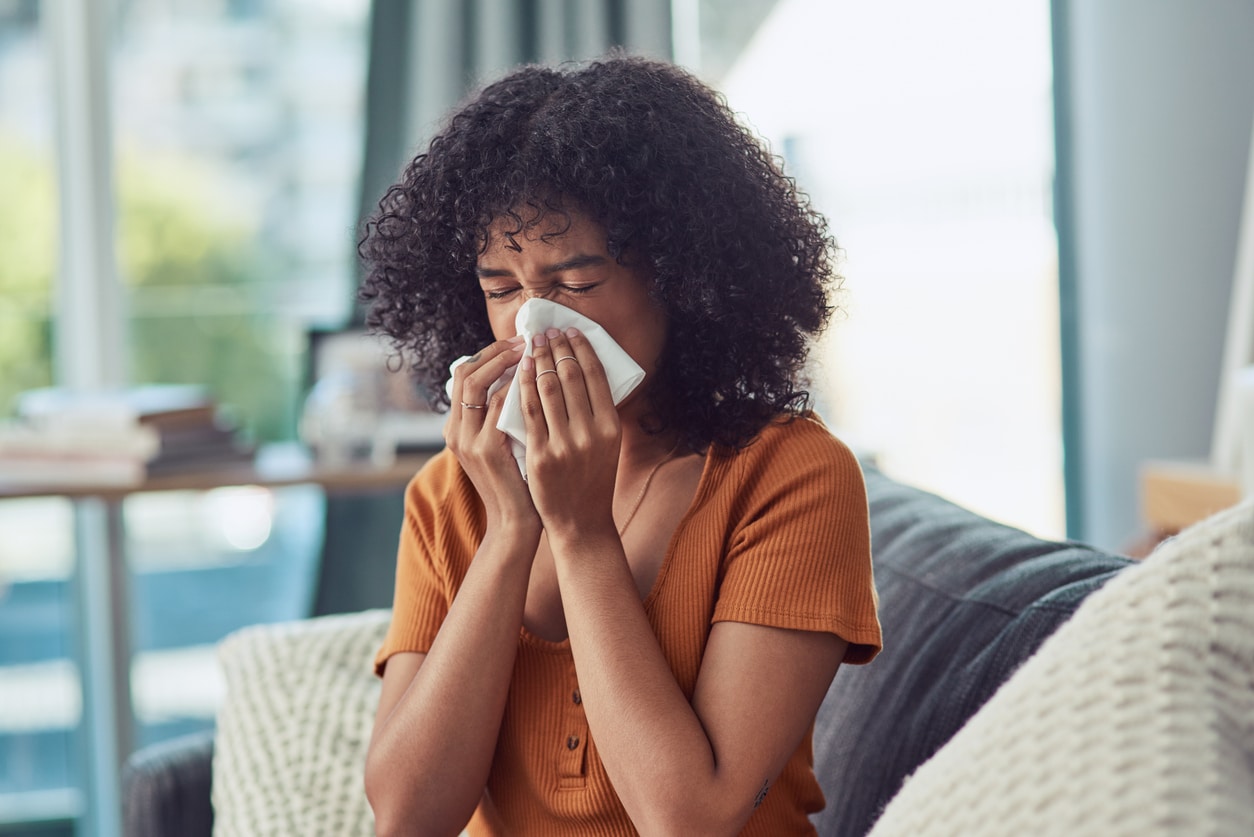Research has shown that chronic allergies can lead to an increase in rates of depression, anxiety, sleep disturbance and possibly even an increased risk of suicide. Let’s examine why allergies can affect your mood and solutions to help improve your mental health.
Allergy Symptoms Can Make You Feel Depressed

Living with chronic allergies may mean days and months of feeling unwell and dealing with symptoms like:
- Congestion
- Sneezing
- Runny nose
- Itchy eyes and throat
- Watery eyes
- Postnasal drip
When you don’t feel your best physically, your mental health can suffer.
Stress Worsens Allergy Symptoms
There is also evidence to indicate that psychological stress can worsen allergy symptoms. A 2014 study found that people who experience chronic psychological stress had:
- Stronger postnasal discharge
- Thicker discharge
- Worse cough
- Disturbed sleep
- Fatigue
This creates a vicious cycle where worsening mental health and allergy symptoms exacerbate one another.
Allergies Make it Hard to Sleep
Waking up every few hours to a sneezing fit or struggling to find a comfortable position to breathe can make it hard to sleep. Even one bad night’s sleep can affect your mood the next day, but if it’s happening every night, it can increase your feelings of depression and anxiety.
Allergy Medication May Affect Mood
Certain allergy medications could be worsening your mood. Corticosteroids that are injected or inhaled have been associated with manic and depressive episodes. The same has not been found in the use of topical corticosteroids.
If you use these medications and have noticed any increased feelings of depression or other mental health issues, talk with your doctor about changing medications.
Manage Your Allergy Symptoms to Improve Mental Health
Finding successful treatments for your allergy symptoms may go a long way towards improving your mental health.
Avoiding your allergy triggers when possible is an important step in managing your symptoms. Some things you could do include:
- Monitoring the pollen levels in Charleston
- Regularly cleaning your home, bedding and furniture
- Investing in a dehumidifier
- Keeping any pets out of the bedroom
It’s also a good idea to visit an allergist. They can use allergy testing to pinpoint your triggers, which can help you know what to avoid. They can also recommend treatment options like prescription antihistamines or immunotherapy to reduce or perhaps even eliminate your symptoms.
